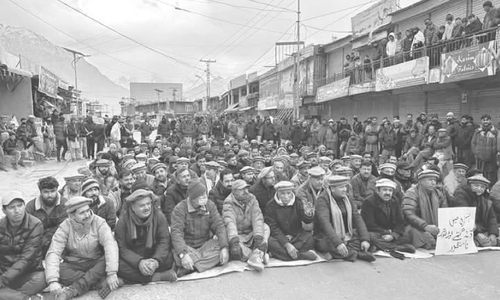SIR Winston Churchill — himself half-American — once contended that Great Britain and the United States were “two nations divided by a common language”. There has yet to be an American translation of his monumental A History of the English-Speaking Peoples (1956-58).
Modern Americans believe that they are too busy making history to read it. History is exacting its revenge. Future generations of Americans will be taught the lessons of US interventions across the globe, just as US leadership since the Second World War has faced the “grinning infamy” of its risible policies.
Over 180 years ago, the British invaded Afghanistan. The retreat of its forces from Kabul in 1842 formed the subject of Patrick Macrory’s account Signal Catastrophe (1966). When Macrory discovered that his book had been catalogued under ‘Railway Disasters’, it was reissued as Kabul Catastrophe.
Such a renaming, though, did not disguise its message which echoed that of an earlier historian John Kaye. His History of the War in Afghanistan (1851) splayed “the awful completeness, the sublime unity of this Caubul tragedy [.] The history of that gigantic lie was written in characters of blood”.
The US and its allies seek to control Afghanistan from the grave.
Thirty years later, when Britain embarked heedlessly on its second Afghan war in 1878, a Cassandra warned: “The disaster of the Retreat from Kabul should stand forever as a warning to the Statesmen of the future not to repeat the policies that bore such bitter fruit in 1839-42.” Unfortunately, politicians then as now suffer from genetic amnesia.
Field-Marshal Sir Gerald Templer (once chief of Imperial General Staff, 1955-58) contributed a preface to Macrory’s book. The unspeakable methods he himself had used to subjugate the Malayan National Liberation Army in the 1950s were repeated by the Americans in Vietnam, without success. Applying his crimson learning to Afghanistan, Templer admitted “the impossibility of controlling, by force of arms alone, a country where the mass of the people is against the ‘foreigner’.”
In 2009-2010, William Dalrymple revisited the theatre of that abortive Afghan conflict when researching his book Return of a King: The Battle for Afghanistan (2013).
Ten years into the US-led occupation, Dalrymple noted that the Taliban still controlled “over 70 per cent of the country” while “Karzai’s government had firm control of only 29 out of 121 key strategic districts”. Even then, he detected that “despite the US pouring in around $80 billion into Afghanistan, almost all that money has disappeared into defence and security”.
He was alarmed that “despite all the efforts of a dozen countries and a thousand agencies over more than a decade since 2001, the country is still a mess: a quarter of all teachers in Afghanistan are illiterate. In many areas, governance is almost non-existent; half the governors do not have an office, even fewer have electricity. Civil servants lack the most basic education and skills”.
Dalrymple quotes a damning indictment by Sir Sherard Cowper-Cowles (in 2010, Britain’s special representative) on how his country had rushed in where better sense feared to tread: ‘Getting in without having any real idea of how to get out; almost wilful misdiagnosis of the nature of the challenges, continually changing objectives, and no coherent and consistent plan; … disunity of political and military command [;] … poor choice of local allies; and weak political leadership.”
Cowper-Cowles did not mention regime change nor cultural conversion. That was anticipated in an earlier warning given in 1839 by Col Sir Claude Wade (agent to the governor general). He cautioned against “the overweening confidence with which we are too often accustomed to regard the excellence of our institutions, and the anxiety we display to introduce them in new and untried soils. Such interference will always lead to acrimonious disputes, if not to a violent reaction”.
Now that the prickly Panjshir valley too has fallen to the Taliban, the US and its allies refuse to parent defeat. They seek to control Afghanistan from the grave, rather as Great Britain tries with flaccid persistence in Hong Kong. The British were in Hong Kong for 99 years, the Chinese for 5,000 years. The US occupied Afghanistan for 20 years; the Afghans have been there for 5,000 years. Today’s Taliban have repossessed not their country but a shredded cobweb of deceit and dishonest propaganda.
British Foreign Secretary Dominic Raab visited Islamabad last week to discuss transit arrangements. He trod a worn path. In 1840, the British sought an assurance from the Sikh Durbar of Lahore that the road to Peshawar and further west should at all times be free for British movement. The young Kunwar Nau Nehal Singh (the grandson of Ranjit Singh) suspected the incendiary nature of the British proposal but could not prevent the hobnails of history.
Like the Sikh Durbar then, our government today is perched astride “a heap of fireworks”.
The writer is an author.
Published in Dawn, September 9th, 2021












































